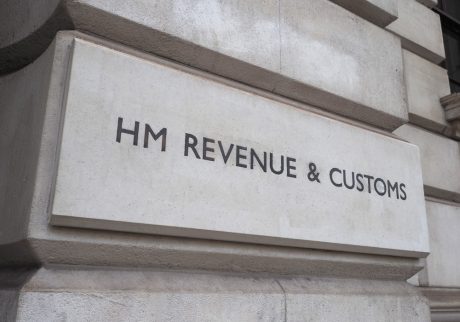A year after reviewing HMRC’s initial ‘call for evidence’, Matthew Greene (Partner) and Guy Bud (Associate Barrister) from our Tax Disputes and Resolution team analyse the newly announced consultation on “Reform of Behavioural Penalties” in the 2025 Spring Statement.
Nearly two decades ago, the introduction of the ‘new’ penalty regime marked a pivotal step in modernising the tax administration system in the UK. It emerged as part of the review on Modernising Powers, Deterrents and Safeguards aimed at creating a more streamlined approach to encouraging compliance. A key goal was to harmonise the patchwork of disparate penalty regimes that applied to different taxes.
The regime established four categories of penalties covering common errors: inaccuracies in a document (Schedule 24 of the Finance Act 2007), failure to notify (Schedule 41 of the Finance Act 2008), late filing (Schedule 55 of the Finance Act 2009) and late payment (Schedule 56 of the Finance Act 2009). Of these, the first two are calculated by reference to the taxpayer’s “conduct”. The changes have been broadly positive, although the ambitious vision of full harmonisation has never been realised; for example, some aspects relating to corporation tax and inheritance tax still use bespoke penalty regimes.
Despite this relatively positive picture, HMRC has long had concerns about whether the penalty system remains fit for purpose. These adjustments hint at an ongoing desire to rework the whole penalty framework.
Tax administration framework review
In 2020, the government announced a 10-year strategy for tax administration with the aim of creating “a tax system fit for the challenges and opportunities of the 21st century”. This included a far-reaching review of administrative and investigative powers as well as penalties targeting taxpayer non-compliance.
HMRC issued a call for evidence in February 2024 addressing the full range of enquiry and assessment powers, penalties and safeguards. The scope was extremely broad. Although there were some valuable suggestions around harmonisation and other factors, we observed at the time that “the overall tone of the discussion looks to be focused on making the regime tougher”. The public responses unsurprisingly showed enthusiasm for “fewer, simpler penalties” with particular support for greater harmonisation. There was also broad support for refocusing penalties on persistent non-compliance rather than careless one-off slips.
The new consultation announced as part of the Spring Statement on 26 March 2025 is much narrower and focuses on more specific proposals around penalty reform. The first half proposes a series of fairly modest tweaks to the existing regime. The second considers some more radical “alternative approaches”, which merit particular scrutiny.

Reforming the existing system…
A number of separate proposals are on the table. The consultation shows some appetite for reworking the current system of disclosure-related penalty reductions and encouraging the automatic suspension of penalties incurred for one-off failures. Any reform of the current approach towards penalty reductions for disclosure would be welcome for many taxpayers. Equally, there is a case for reworking the complex rules affecting penalties in cases of offshore non-compliance.
One point to flag is the consultation’s discussion of “strengthening how penalties apply to the most serious failure and inaccuracies and repeated instance of these, by changing the penalty rates for deliberate and repeated instances of deliberate behaviour”. This includes a proposal for increasing the amount potentially charged for deliberate conduct and possibly creating a new class of “deliberate and repeated” non-compliance. This seems reasonable in theory, but careful attention will need to be paid to how this is applied in practice. In recent years, HMRC has demonstrated a greater propensity for alleging deliberate conduct, sometimes on the basis of limited evidence.
… or “alternative approaches”?
The consultation also raises the prospect of fundamental reform to the aspects of the penalty system. This is where the consultation becomes much more radical.
The first proposal proposes “a different model for behavioural penalties”. This would merge inaccuracy and failure to notify penalties into a single penalty regime and would explicitly seek to “strip back behavioural considerations”. The existing categories of “careless” and “deliberate” errors would be dissolved. Although it is unclear, it seems possible that some innocent mistakes might become subject to penalties for the first time.
The proposal instead envisages two complementary penalties:
- A smaller “misdeclaration” penalty penalising most or all failures. The taxpayer’s behaviour would have no direct relevance, although some protections may be available where the taxpayer has a “reasonable excuse” (a concept that overlaps with the idea of reasonable care, which currently applies to carelessness penalties). The taxpayer’s main recourse would be to make a full disclosure of the non-compliance in order to have the amount reduced.
- A more punitive “civil evasion penalty” dealing with “more serious cases of deliberate non-compliance”. The stated intention is that this would affect only a small number of cases and higher rates might be applicable for repeated failures.
The second set of proposals concerns possible “non-financial” penalties. There is limited clarity about what precisely this would involve in practice. The consultation does, however, state: “In the most serious cases where deliberate and repeated non-compliance has already occurred, HMRC will consider tougher non-financial sanctions drawing on experiences from across the public sector such as recent proposals from the Department for Work and Pensions to refer benefits fraudsters for disqualification from driving. Tougher non-financial sanctions could also include alignment with the existing Child Maintenance Service power to ask the courts to order the cancellation of a person’s passport where they are deliberately non-compliant. In these circumstances, non-financial sanctions would be actions of last resort and intended to have a deterrence effect.”
This would mark a radical departure from current practice and is especially alarming given the draconian nature of the options cited. The possible impact of non-financial sanctions is hard to assess in abstract terms without clear indication of precisely how, what and when they would be imposed.
Conclusion: forgotten safeguards
Several threads seem to run throughout the consultation. HMRC has a clear and understandable focus on ensuring that its penalties provide effective deterrence and encourage taxpayers to take reasonable care with their tax affairs. At the same time, it is clearly focused on ensuring penalties penalise repeated non-compliance rather than innocent one-off mistakes. Legislative simplicity appears to be a high priority.
These are all significant factors but should not obscure the equally important issue of effective taxpayer safeguards. This is particularly important since penalties serve an explicitly punitive function and always raise delicate issues around a taxpayer’s human rights. Robust legal protections must be available to the taxpayer to guard against unreasonable, disproportionate or manifestly unfair outcomes in the situations that taxpayers and their professional advisors encounter all too frequently. This is vital for the integrity of our tax system as a whole.
The current focus on the taxpayer’s conduct may not be the only way to achieve this result, and new approaches may be worth considering. Whatever the specific outcomes of the consultation, we hope this crucial issue will be foregrounded in any future detailed proposals for change.
You can find further information regarding our expertise, experience and team on our Tax Litigation and Resolution page.
If you require assistance from our team, please contact us.
Subscribe – In order to receive our news straight to your inbox, subscribe here. Our newsletters are sent no more than once a month.





